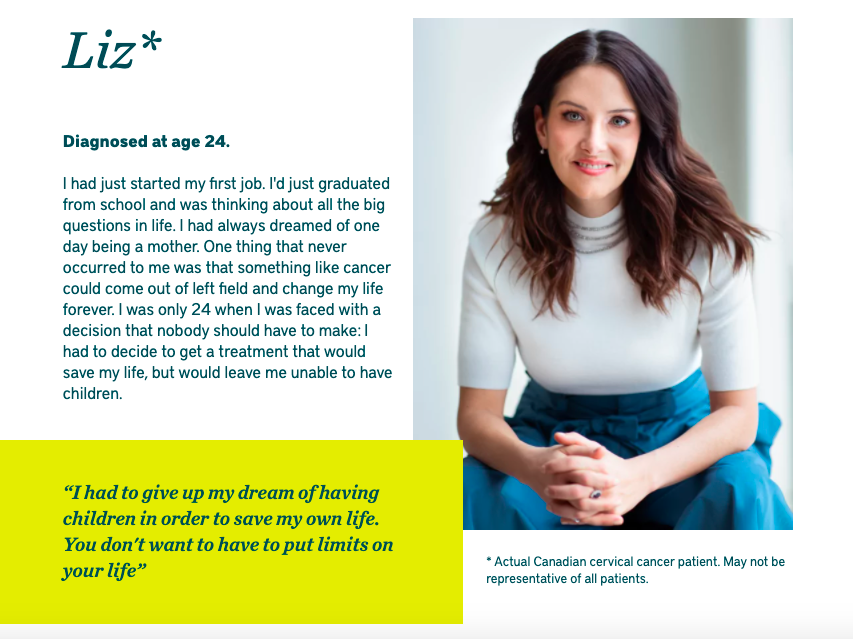This post is sponsored by Merck Canada. The opinions on this blog, as always, are my own.
It was just two weeks ago that an email landed in my inbox: “Physical Education Form – Please Sign”. Normally I skim over such permission slips, but this time, the words seemed to jump off the page –
We will examine some aspects of sexuality, including sexual characteristics, sexual identity, and sexual roles. We will review the changes of puberty and the development of male and female fertility. We will discuss sexually transmitted diseases, and how to prevent them.
It suddenly hit me – I’ll soon have brand new teenager in the house. And he’s almost TALLER than me.
 Conversations that I’d convinced myself I could put off for months (years?) suddenly became a priority. And while I know that my boy’s father will take the reins for much of the “talk”, as a woman, and as a Canadian mother to boys who may choose to become sexually active in the coming years, it’s my responsibility to openly discuss HPV infection, cervical cancer and how to help protect against both. By getting vaccinated to help protect himself against HPV, his own risk of getting infected is reduced and he may, in turn, be less likely to transmit HPV to his partner(s).
Conversations that I’d convinced myself I could put off for months (years?) suddenly became a priority. And while I know that my boy’s father will take the reins for much of the “talk”, as a woman, and as a Canadian mother to boys who may choose to become sexually active in the coming years, it’s my responsibility to openly discuss HPV infection, cervical cancer and how to help protect against both. By getting vaccinated to help protect himself against HPV, his own risk of getting infected is reduced and he may, in turn, be less likely to transmit HPV to his partner(s).
The following information, in part, was provided by Merck Canada, makers of GARDASIL®9. Speak with your healthcare professional to see if GARDASIL®9 is right for you or your children, ages 9 to 45.
Recently, I polled my Instagram audience with the following questions:
Do you know the link between HPV infection and cervical cancer?
True or False: If you’ve already had an HPV infection, you can’t get it again.
How many Canadian women are diagnosed with cervical cancer each year?
I’m happy to share that my audience is well informed – but there’s always room to learn more.
Do you know the link between HPV infection and cervical cancer?
HPV, or the human papillomavirus, causes nearly 100% of cervical cancer cases. It’s important to note that when a woman is infected with HPV, in many instances the virus will be cleared. However, when certain types of the virus don’t clear, abnormal and precancerous cervical lesions can develop. Pap tests look for these abnormal cells, but if they aren’t detected early and treated, cervical cancer could develop.
I see two takeaways here: first, routine pap tests are absolutely essential throughout a woman’s life, as early detection is key to sexual health. Second, since vaccination with GARDASIL®9 can help protect against the nine HPV types that cause about 90% of cervical cancer cases and the two HPV types that cause over 90% of genital warts, receiving the GARDASIL®9 vaccine can help prevent HPV infection and cervical cancer.
True or False: If you’ve already had an HPV infection, you can’t get it again.
The answer is false – and the statistics are staggering. There are over 200 different types of HPV, with approximately 40 types that infect the genital tract and at least 15 high-risk HPV types that may cause cancer. That means, even if you’ve been infected with one type of HPV, you can still be infected with another.
When you couple this with the fact that about 75% of sexually active Canadians will have at least one HPV infection in their lifetime, it becomes more important than ever to take control of your health and the health of your loved ones now by helping to protect against certain HPV-related cancers and diseases caused by some types of HPV with vaccines that are available to you.
How many Canadian women are diagnosed with cervical cancer each year?
Every year, approximately 1,500 new cases of cervical cancer are diagnosed in Canada. Anyone who is sexually active is at risk for HPV, and since the infection often has no signs or symptoms, you may not be able to tell if you or your partner is infected.
To hear the stories of real Canadian women living with cervical cancer, visit GARDASIL9.ca.
Meet Liz. She was diagnosed at age 24 and was faced with a decision that nobody should have to make: she had to decide to get a treatment that would save her life – but would leave her unable to have children.
 Her story is just one of many reminders why open discussion about HPV infection, and its link to cervical cancer, is an important conversation to have – the earlier, the better As my boys enter into their teenage years, for me, the time for action is now. I encourage you to speak with a healthcare professional to find out if GARDASIL®9 is right for you or your children (ages 9 to 45).
Her story is just one of many reminders why open discussion about HPV infection, and its link to cervical cancer, is an important conversation to have – the earlier, the better As my boys enter into their teenage years, for me, the time for action is now. I encourage you to speak with a healthcare professional to find out if GARDASIL®9 is right for you or your children (ages 9 to 45).
To learn more about HPV infection, cervical cancer or how you can help protect yourself, visit GARDASIL9.ca.
GARDASIL®9 helps protect against certain cancers and diseases in boys and men and girls and women 9 through 45 years of age caused by HPV types 6, 11, 16, 18, 31, 33, 45, 52 and 58. GARDASIL®9 does not treat HPV infection, diseases or cancer and may not protect everyone who gets vaccinated. It is also not indicated to reduce the consequences of cancer, such as infertility. Not recommended for use in pregnant women. Side effects and allergic reactions can occur.
Leave a Reply